
David Seidler has been mother and nursemaid to The King's Speech, a project he began thinking about while in college and which finally came to theaters in 2010, over 50 years later; he is still fiercely protective of it.
And the history of the film as he tells it gives dramatic weight to the oft-repeated William Goldman adage about Hollywood moviemaking: nobody knows anything.
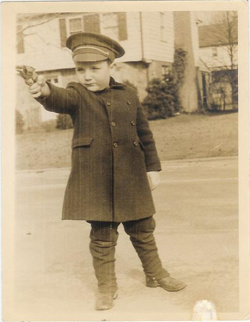

Seidler was born in wartime England and grew up in the US. This multi-cultural upbringing has helped inform an outsider's perspective on what was until now a checkered film career (is there any other kind?) that had arid stretches as well as some modest successes. (I first met him in one of the down times.) Yet now, in addition to the accolades he is receiving as the author of The King's Speech story and screenplay, he has given inspiration to writers who have despaired of ever seeing their projects make their way to the screen.
Stay in the game, Seidler's saga tells us. It's a perfect reflection of one of the themes of the film.
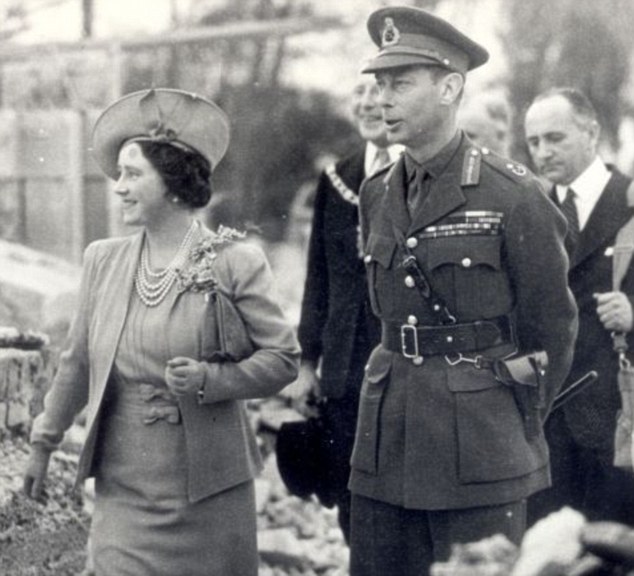
Seidler's story of how the film got made is already legendary: his own childhood speech impediment acquired as a refugee en route to the US during the war, listening to fellow-stutterer King George's inspirational speeches, an eventual cure- by-cursing (the King's crucible was the advent of live radio; Seidler's was asking a girl out on a date), his discovery of Lionel Logue, the King's Henry Higgins, the help of friends in London tracking down Logue's son, his patience awaiting the blessing and then death of the Queen Mother (played in the film by Helena Bonham Carter who obviously understands well what being a wife is all about), writing the screenplay, transforming it into a play and then back into a screenplay, hand delivering the script to Rush who championed the project, and finally getting it to Tom Hooper, the perfect director. 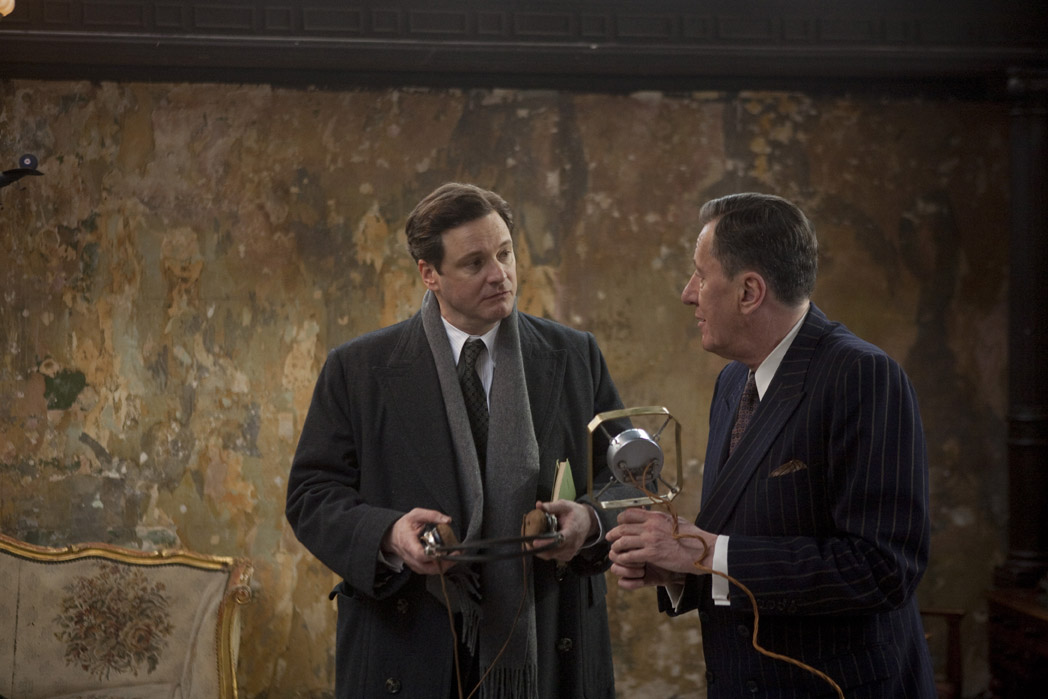
Seidler is clearly exhilarated by having his long years of dedication come to such brilliant fruition: it was his youthful persistence of vision -- mirrored in the film by the dedication of Bertie and Lionel -- that made this movie happen.
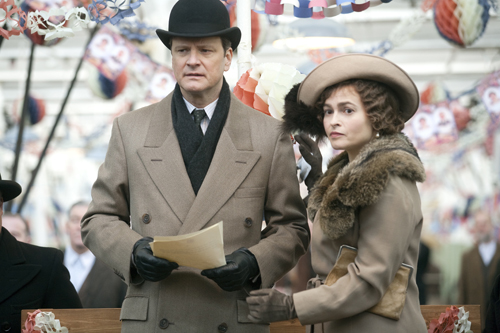
There are many themes in the film that have obvious resonance--friendship, love and marriage, duty, loyalty -- but some other nuggets bear highlighting. How our reliance on degrees and accreditation may be over-emphasized (Logue was a wannabe actor and self-taught expert). How sex has influenced the course of politics when it has to do with presidents and kings (England in the thirties seemed almost as threatened by the American divorcee Mrs. Simpson as Hitler and Germany). How the upstairs-downstairs lives of the rich and royals fascinate endlessly (am I the only one who would have loved a Papa Penguin down on his knees in black tie?) Stepping inside Bertie's skin, as Seidler was so able to do, has lifted this film from being a docudrama to the most engaging narrative film I have seen this year.
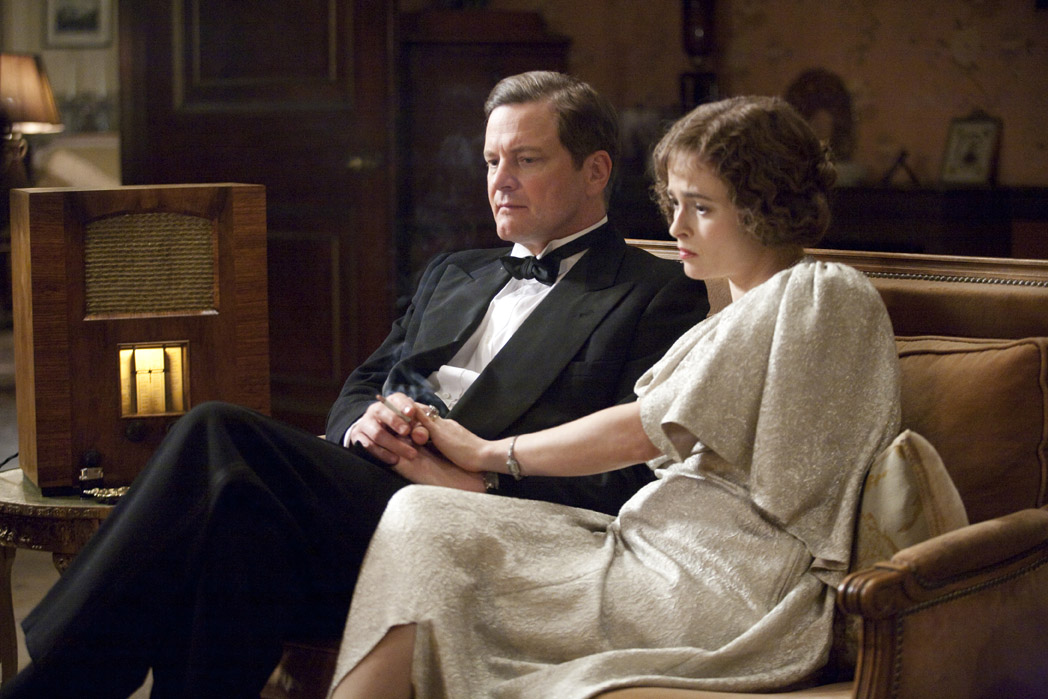
Yet Seidler was not nominated for a WGA award; when I got my first ballot without his name, I was flummoxed. It seems because he reluctantly agreed to a contract as a British writer -- he is a WGA member but the British producers were concerned that a film about the King have the imprimatur of one of their own -- Seidler was, alas, declared ineligible. The WGA made efforts to try to fix this as did the Weinstein Company but time ran out. Academy voters still have time to rectify though as Seidler is indeed nominated for an Oscar.

On his way to the Bafta awards, the British version of the Oscars (airing Sunday night) Seidler took time away from the hard-driving, no-holds-barred, marketing-party-award circuit to answer a few questions by email including a response to recent objections to the film which have gone viral, and which he is most eager to address.
Culture Zohn: You talk about the king's speech impediment and his wartime radio speeches as being inspirational to you as a young, stammering, wartime refugee from England in the US. You eventually uncovered a part of King George's life that few knew much about. Your career in Hollywood had begun with the true story of another under-celebrated loner, Preston Tucker, who designed a revolutionary car. Is the biopic genre the best match for your interests and talents?
David Seidler: It might seem that way; at least half of the approximately twenty projects I've had made are bios. But if you look closely you'll see the real unifying thread is that they're stories about people who've had the courage to change their seemingly preordained destinies. That's what interests me. That they're biopics is incidental.
CZ:The saga of how this film got made is beautiful in and of itself and one that bears repeating. Eventually, the script made its way to the director, Tom Hooper. Yet once he committed, there were 57 additional drafts! What were the points of most violent disagreement, or the notes which you had most trouble executing? What's one scene that did not make it into the film that you miss?
DS: Well, I'm not quite sure if it was actually 57 drafts. But yes, there were numerous adjustments made. The major reasons were historical accuracy and the need to expunge anything which felt theatrical. I had originally written TKS as a screenplay, but then wrote it as a stageplay because the physical limitations of theatre would force me to focus on the two key relationships of the stuttering King and his therapist. Basically it's two men in a room, and I had to get that right. Then I took what I had learned from that exercise and put it back into a screenplay. But certain theatrical elements remained without my realizing it. An example: in the stage version Winston Churchill and the Archbishop of Canterbury Dr. Cosmo Lang as almost as a comic Greek chorus. They have some wickedly funny lines. But Tom Hooper correctly felt it was too stagy and those scenes had to go. We were never in violent disagreement, it was truly a collaborative process.
The only cut I still regret is the exclusion of King George V's euthanasia. The old King was dying, but not on time. Everyone wanted the news to first appear in the respectable Times and on the BBC, not via the disreputable afternoon papers who might mention David's (Edward VIII) scandalous affair with American twice divorcee Wallis Simpson. The deadline (no pun intended) was midnight. The King was inconveniently lingering so they hurried him along with an injection into the jugular vein of a mixture of morphine and cocaine. I felt that including this not only gave more drama to the sequence but also demonstrated the immense power of the new media, which is what Bertie was going to have to face. Although the scene was filmed, Tom and the producers ultimately felt it was such a controversial subject it might overshadow the rest of the film. They're probably right, but I still regret the cut.
CZ: Though you hung onto the project and rewrote it both as a film and a play and back again, you never actually had rights to Logue's life story as his son insisted the Queen Mother approve and she wrote you that she was still too close to the painful events to do so. In Hollywood, that can often be capricious as one is knocked off the project for a "hotter" writer. Was this ever threatened?DS: Never. The producers and Tom were always very protective of my work. I did, however, have to do a lot of all-nighters during the always frantic pre-production period, and I suppose if I had faltered a replacement might have been considered. But that never happened, and was never even whispered about. I really appreciate the loyalty.
CZ: Your own stammering was the impetus for seeking out Lionel Logue's story, and the F word your own breakthrough which you generously donated to the character of Bertie. Yet you intimate that it was the friendship, and the reassurance Lionel provided that was even more important. Is this emotional underpinning to curing stuttering based in actual fact?
DS: Yes, I think it is. It is coming out in the anecdotal feedback we're getting from the speech community. Ask anyone who stutters or any speech therapist and they'll tell you about the value of having a friend who will just listen, with no agenda and with no impatience. It makes all the difference to one's confidence.
CZ: A recent story in the NY Times hinted at jabs "badmouthing" The King's Speech. You've told me there is a "smear campaign". Is this just publicists waging Oscar war or are there real concerns about the factual basis of the film?
DS: There are no real concerns about the factual basis of the film. There are Oscar war attacks and there are misreadings based on personal agendas.
The first is an unsigned allegation that Bertie was anti-Semitic. I now watch, appalled, as this brave decent man is slandered. Let me be blunt: I lost my paternal grandparents to the Holocaust. I would never dedicate that much of myself to glorify an anti-Semite. In my extensive research on Bertie, and I've read a mountain of books on the subject, I never once encountered a single suggestion to back up this assertion. Edward VIII and Wallis Simpson were known Nazi sympathizers. George VI, never. This spurious claim is based on one line from an obscure letter that supports the turning back of illegal immigrants from Palestine. This reflected the stance of the UK Government, not the personal preferences of the King. Although this policy can now be seen as tragic, one must remember the Middle East then, as today, was in turmoil. Unprepared for war in Europe, the last thing Britain needed was further destabilization in their Levantine Protectorate. There's a big gap between that, and accusing George VI of being a Nazi sympathizer! Further, the brutal truth is that neither Britain nor the US wanted to be seen as fighting a war on behalf of the Jews. Again, this was the view of the government, not specifically that of the King. Roosevelt was also reluctant to encourage the influx of refugees; in more recent times every American president from Kennedy has had a policy against accepting illegal immigrants, even those fleeing repression. When the US turns back boatloads of Cubans or Haitians, is President Obama called a racist? During Bertie's lifetime, and in more than a half a century since his death, there has never been the faintest whisper of his expressing anti-Semitic sentiments. Finally, consider the source of this smear: an unsigned email.
The other prong is an article by the contrarian Christopher Hitchens in Slate. He makes two points, both wrong. He accuses me of not knowing that Churchill supported David (Edward VIII) not Bertie. Of course I knew that. Churchill was a devote monarchist and so of course stuck with the rightful heir until he warned David not to bring Wallis Simpson to Balmoral and not to let her get a divorce so he could marry her. When David ignored both pieces of advice and was clearly willing to bring his nation to the brink of civil war with a world war approaching, Winston reluctantly jumped shipped and changed horses in mid-stream (to mix a metaphor.) Where does Churchill appear in our story? At Balmoral. Exactly the moment he switched to Bertie. I did give Churchill a speech about his past support for David and why he changed allegiance, and it was filmed, but Tom quite rightly cut it because the film was too long and that scene sagged. Besides, what we show is absolutely correct. And, Hitchens' opinion to the contrary, Churchill and George VI went on to have a very close and warm relationship. Hitchens also accuses Bertie of supporting Chamberlain in appeasing Hitler. Well, just about everyone in England, except Churchill, did the same. Hindsight is always 20/20. England had lost the cream of a generation in WWI. Nobody wanted another war. And England wasn't ready. Chamberlain had to buy time to gear up war production, which he did; hardly the actions of an appeaser. When he returned from Munich with "peace in our time" crowds gathered around 10 Downing Street and cheered him as a hero. Of course the King and Queen supported him. Constitutionally they had to. And they did want peace. There is a huge gap between thinking of war as a last resort and being pro-Hitler. How Hitchens makes that leap is beyond me. He's letting his anti-monarchist sentiments rule his reading of history. And he likes to be contrary.
CZ: As a writer who worked for a time with his (ex) wife, and who made his way in Hollywood as most of us do -- in fits and starts, with many down times in between projects -- what was special about this one that gave you the faith to return to it over and over again -- and become a hero of an entire generation of "veteran" writers who have seen their stars wane as they get older? Have you gotten more offers recently and what are you working on now?
DS: It was debt of gratitude I had to make good on. King George VI had given me hope as a child and I had resolved to write about him. I had to do it, didn't I? And, of course, to be honest, I was writing about my own journey with stuttering. I wrote it shortly after being diagnosed with what at the time seemed a rather dire form of cancer (may I quickly add I've been in remission now for six years and am currently a poster boy for good health -- it's hard to kill a weed.) I needed to get my mind off of how sorry I felt for myself at the time. So, in a sense I was writing my last will and testament. Except I lived to hear my will read and read well.
And yes, it has changed things radically professionally. I'm getting offers continually now, and at prices that definitely get my attention. (My next project is The Lady Who Went Too Far with TKS producer Gareth Unwin. It's about Lady Hester Stanhope, a niece of William Pitt The Younger who was Prime Minister of England during the Napoleonic Wars. Hester went into the Middle East and became a female Lawrence of Arabia a hundred years before Lawrence organizing the Bedouin tribes. Laura Of Arabia. A great sweeping epic love story with a woman in the central role.)
But the great thing is to be able to work on projects I love. If you write something 'They' want, age makes no difference. You don't have to be a major league athlete to write a script. The only muscle that counts is the one between your ears. Guess what, life experience helps. If you still have a brain you can still be a pain and make a contribution to the art and commerce of film.

The Kings Speech is still in theaters. The 2011 British Academy Film Awards ceremony in London will be aired on a tape-delay basis by BBC America on Sunday, February 13 at 8 p.m. ET. The awards show will be repeated at 11 p.m. This year, there will be a 30-minute red carpet pre-show. The Oscars are on Sunday February 27th on ABC.
All color images courtesy The Weinstein Company; all black and white images courtesy David Seidler
